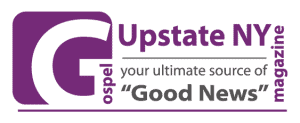As we embark on another election season, I was able to speak with the Monroe County Democratic chair, Brittany Wells, and politically conscious clergyman, Pastor James Cooper to provide a better understanding of our need to get out and vote. Join our conversation and hopefully address some of your questions. Don’t forget to exercise your right to vote!
Does Early voting help or hinder the process? When are the results reported? For example, we see in the media what precincts have higher early voting numbers. Is this a wise decision since it allows campaigns time to redirect their campaign to strengthen the turnout in targeted areas? Early Voting definitely helps the voting process. In New York, voters are given 9 extra days to vote rather than only Tuesday, Election Day. The Board of Elections (BOE) immediately reports how many people voted and who voted each night of early voting but we are not given actual results until election night once all polls have closed. The issue we have in Rochester is, early voting sites are not consistent every year, and a new process that can make educating voters quite difficult.
Early voting helps the process because it allows people to vote without having to wait in long lines or take time off work on Election Day. Before most elections, community organizations will host voting events like voter registration drives, early vote events like Souls to the Polls, or meet the candidate events. Do you find these activities to aid in increasing voter turnout? Before COVID-19, I would say that was accurate, but we are seeing these voter education drives and events slowly increasing again. Pastor Cooper and I organized Souls to the Polls during this primary election and plan to do so again in the fall. Two organizations I serve on the board: Westside Democrats and the NAACP of the Greater Rochester have both done voter registration at community events. Events such as these help push voters to turn out on election day. (Brittney Wells) What is the difference between the primary election and the general election? The primary election is when candidates within the same party compete to be the nominee for a specific position in the general election.
The general election is when one candidate from each party runs for a specific position. The past 2 primary elections have produced some surprising results. Can you provide our readers with some insight as to how an individual gets elected into office before the General election? Why is this happening more frequently? When one political party is dominant, a primary election typically determines the winner. For example, in the City of Rochester or most major cities in New York State, democrats typically win, and republicans don’t run in these cities. So, the winner is declared after the primary election, but they are not sworn in until after the general election has taken place. How does an interested citizen find out what offices are open or available to get on the ballot? All this information can be found at the Monroe County Board of Elections website: https://www.monroecounty.gov/elections It seems as though individuals are changing party affiliation to get into office, then changing back. How and why is this occurring? Are the citizens being misled/ misinformed?
This is still rare, but some candidates have done this because the demographics of their district have changed or the party they were affiliated with did not want them to run for office. I personally would never tell a candidate to take this route, but it is ultimately up to the voters to decide whether a candidate can represent them in office. The one exception is the District Attorney, who was elected as a Democrat in 2011 and switched her party affiliation 4 years later. Brittaney/Pastor, are there any trends that you have noticed in the political realm that you would like to bring to the attention of our readers? In the grand tapestry of democracy, one thread stands out as both underappreciated and remarkably powerful: the act of voting. Yet, in a paradox that echoes through generations, those who stand to be impacted the most by the outcomes of elections often find themselves disengaged from the very process that shapes their future. Young people, the torchbearers of tomorrow, must recognize the immense importance of their vote and actively participate in shaping the course of their lives. The truth is stark: the decisions made today reverberate into the tomorrows of generations to come.
From education policies to climate action, healthcare to employment opportunities, the policies and laws that emerge from the ballot box have a direct impact on the quality of life for all citizens. The failure to recognize this connection and actively participate in the democratic process can lead to a future that doesn’t align with the aspirations and needs of young people. It’s a perplexing enigma that those most affected by political decisions, especially the youth, tend to exhibit lower voter turnout. The reasons can be myriad – a sense of disconnection from politics, disillusionment with the system, or perhaps a belief that individual votes don’t make a difference. However, it’s crucial to understand that each individual ballot is a cornerstone of change. When young voices unite at the ballot box, they transform from passive observers to active architects of the future they want to see. The disconnect between the magnitude of impact and the level of participation among young voters must be bridged. The narrative must shift from disengagement to empowerment, from disillusionment to hope, and from apathy to action. Young people hold in their hands the power to mold the course of history, dismantle systems that do not serve them, and construct a future that aligns with their values.
So it seems as though we as citizens are going backwards when it comes to voting. Our parents and grandparents fought for us to have the right to vote but it seems as though we don’t see a value in voting. I hear people say that their vote doesn’t count or won’t impact the outcome. Can you provide insight into the damage we caused by not voting? Choosing not to vote can cause a ripple effect of bad policies and rulings on both the local and national levels. For example, the Trump administration appointed a record number of federal judges and three Supreme Court justices who all have lifetime appointments, and we are now seeing ultraconservative rulings like rolling back affirmative action within colleges and universities. Not voting also keeps people who don’t act in our best interests in office. It allows people to claim to represent our districts on the County Legislature and the City Council. Is there anything I may have overlooked or a subject that you may want to expound upon that our citizens need to know? In a world where progress is a constant current, not voting means swimming upstream against it. Our vote is the paddle that steers us toward a future that aligns with our interests.
It’s the tool to hold politicians accountable for decisions that impact violence economic opportunities, education, healthcare, and more. Without our vote, we fight an uphill battle, surrendering our influence over policies that shape our lives. Voting empowers us to demand accountability from elected officials, compelling them to prioritize our needs. Each vote shapes the landscape of our future, bridging the gap between frustration and action. In a nutshell, our vote is the compass that guides us through the river of change. By casting our ballots, we not only participate in elections but actively shape the destiny of our society. As we embark on another election season, I was able to speak with the Monroe County Democratic chair, Brittany Wells and politically conscious clergyman, Pastor ames Cooper to provide a better understanding of our need to get out and vote. Join our conversation and hopefully address some of your questions. Don’t forget to exercise your right to vote!










